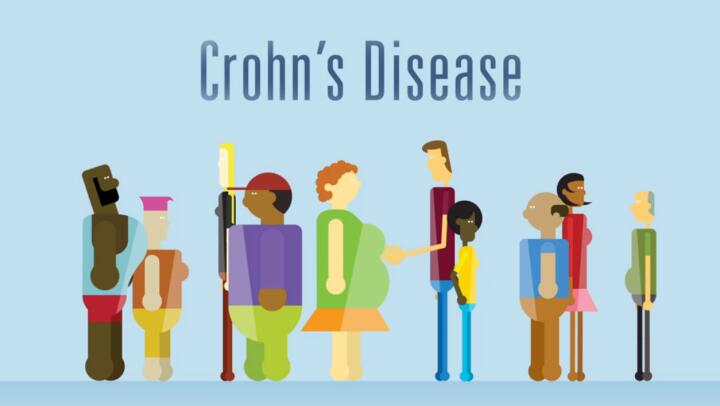What is non-celiac gluten sensitivity?
Gluten is a protein in grains, including wheat, barley and rye. For some people, gluten can wreak havoc on their digestive systems. Many people describe this as a gluten allergy, but the condition is gluten sensitivity (non-celiac). According to the American College of Allergy, Asthma and Immunology, there is no such thing as a gluten allergy. If it doesn’t exist, why do so many people say they have a gluten allergy reaction? It helps to start with an explanation of some conditions related to gluten that people often confuse.
First, there’s celiac disease. It is an inherited autoimmune condition where gluten triggers the immune system to attack the small intestine. Celiac disease can lead to serious complications, including cancer and nervous system problems. People with celiac disease need to eliminate gluten completely and permanently. Celiac is rather rare, affecting only 1% of the general population. Genetic testing and antibody testing can help diagnose celiac disease.
Then, there’s wheat allergy, which is a food allergy. In this case, the immune system reacts to wheat and causes an allergic reaction with IgE (immunoglobulin E) antibodies. People with food allergies tend to have a personal or family history of allergic diseases, such as eczema, hay fever, and asthma. Like other food allergies, a wheat allergy can be serious and lead to anaphylaxis. Doctors diagnose it with skin testing, blood tests, and food challenges. Treatment involves avoiding wheat and having epinephrine available for emergencies.
Finally, there’s non-celiac gluten sensitivity (NCGS). Instead of being an allergy, this is most likely a food intolerance, similar to lactose intolerance. Food intolerances are gastrointestinal—or digestive system—disorders, not allergies.
There’s debate about exactly what happens in NCGS. It doesn’t involve an autoimmune reaction, like celiac. And it doesn’t involve IgE antibodies, like a wheat allergy. Many experts believe it could still have an immune component that remains unidentified. Others lean toward it being a type of IBS (irritable bowel syndrome). Regardless, avoiding gluten is the main treatment. Because experts don’t entirely understand NCGS, there aren’t any clearly defined risk factors for the condition.
The confusion around these three disorders stems from their similar symptoms. They can all cause digestive upset, including nausea, vomiting, diarrhea, gas, cramping, and abdominal pain. People with celiac disease often develop anemia, bone problems, blistering rashes, and problems with their spleen. People with wheat allergies can also have hives, nasal congestion, and swelling or irritation of the mouth and throat. People with NCGS can also have symptoms outside the digestive system.
The treatment strategy is the same for all of them as well—eliminate gluten from the diet. Removing the trigger allows symptoms to resolve.
If you think you have a problem with gluten, see your doctor. Diagnosing the underlying cause is a process of elimination. If you test negative for celiac disease and wheat allergy, you will most likely get a diagnosis of NCGS, or gluten intolerance. It’s important not to eliminate gluten before testing is complete. It could result in false negative results.
What are the symptoms of non-celiac gluten sensitivity?
The symptoms of non-celiac gluten sensitivity (NCGS) are mainly digestive in nature. They are similar to both celiac disease and wheat allergy.
Common gluten sensitivity symptoms
Common symptoms of NCGS include:
- Abdominal pain and cramping
- Bloating and gassiness
- Nausea and vomiting
- Weight loss
Symptoms outside the digestive system can also occur, including fatigue, lethargy, and brain fog.
Symptoms that might indicate a serious or life-threatening condition
In some cases, digestive symptoms can be a sign of a serious or even life-threatening condition. Seek immediate medical care (call 911) if you, or someone you are with, have any of these serious symptoms including:
- Fever and chills
- Inability to swallow or have a bowel movement
- Severe abdominal pain
- Sudden abdominal swelling
- Uncontrollable or persistent vomiting, or vomiting blood or dark coffee-ground-like contents
What causes non-celiac gluten sensitivity?
Unlike celiac disease and wheat allergy, scientists are still working to understand what causes non-celiac gluten sensitivity (NCGS). People who have NCGS lack the genetic and immune markers for celiac disease and wheat allergy.
Currently, science has not settled what NCGS is or is not and why it happens. In fact, there’s even debate about whether gluten is indeed the culprit. Some research has convincingly implicated fermentable oligo-, di-, and mono-saccharides and polyols (FODMAPs) in NCGS. FODMAPs are short-chain carbohydrates that the body doesn’t really absorb. Instead, they hang around and ferment—or produce gas—and cause other changes inside the intestine. So, they can cause many NCGS-like symptoms.
Other research suggests NCGS is related to IBS. On this side of the argument, studies have shown changes in intestinal mucosa (the lining of the intestines) after a food challenge with wheat in patients with IBS. Other studies of IBS patients have shown worsening symptoms with gluten and improving symptoms with diets free of gluten. Research continues to explore NCGS to try to define it accurately.
What are the risk factors for non-celiac gluten sensitivity?
Because so much is unknown about non-celiac gluten sensitivity (NCGS), there are no clearly identifiable risk factors for it. Unlike celiac disease, it’s not known to be an inherited condition. Unlike wheat allergy, there doesn’t seem to be a link to the “atopic march.” This term describes the relationship between eczema, food allergies, hay fever, and asthma. People and families with any these conditions are at risk of developing the related conditions.
Reducing your risk of gluten sensitivity
Reducing the risk of a disease relies on changing risk factors that you can control. Since scientists don’t really understand the risk factors for it, it’s not possible to predict or prevent NCGS.
If you are concerned about food intolerances and sensitivities, talk with your doctor. Find out if you need to see a gastroenterologist or work with a dietitian.
How do doctors diagnose non-celiac gluten sensitivity?
Doctors diagnose non-celiac gluten sensitivity (NCGS) by eliminating other causes, namely celiac disease and wheat allergy. If you undergo allergy testing, gluten will not show up in your results, since NCGS is not an allergy to gluten.
Tests for celiac disease include:
- Genetic testing
- Serology testing looking for specific antibodies
Tests for wheat allergy include:
- Blood testing for IgE antibodies
- Food challenge testing and elimination diet testing
For these tests to be accurate, it’s important not to eliminate foods from your diet beforehand. If you eliminate the trigger, the tests may come back normal or negative when they should be positive. If you eat your regular diet and the tests come back normal or negative, it’s more likely that you do not have either condition. After ruling out celiac disease and wheat allergy, your doctor may diagnose NCGS.
What are the treatments for non-celiac gluten sensitivity?
The goal of treating non-celiac gluten sensitivity (NCGS) is to eliminate the cause of the digestive problems. This means avoiding all forms of gluten in the diet. Once gluten is gone as a trigger, symptoms should resolve. Wheat is a main source of gluten, but other foods that contain it include:
- Barley, malt, rye and triticale
- Bulgur and spelt
- Durum, farina, semolina and graham flour
Gluten can also show up in some surprising places, such as food stabilizers (thickening and gelling agents), preservatives, and vitamins and other supplements. Gluten can even be present in cosmetics, toothpaste and envelope glue. You also need to use caution when eating in a restaurant to be sure your dish is free of gluten.
However, unlike celiac disease, people with gluten sensitivity most likely aren’t damaging their intestines when they eat gluten. And unlike those with celiac disease, people with NCGS may be able to get away with consuming small amounts of gluten from time to time. This means you may have some leeway to see what foods you can tolerate. You may also be able to have small indulgences. Keeping a food diary can help you figure out which foods are totally off limits and which ones you can have occasionally.
If you have nutritional deficiencies or weight loss due to NCGS, your doctor may recommend supplements. In some cases, it may be necessary to work with a dietitian.
What are the potential complications of non-celiac gluten sensitivity?
Non-celiac gluten sensitivity may resolve without issues once gluten is gone from your diet. However, limiting your diet can pose nutritional challenges. This is a concern especially if other food intolerances or allergies are present. Working with a dietitian can help you get all the nutrients you need to stay healthy, while avoiding gluten.




























